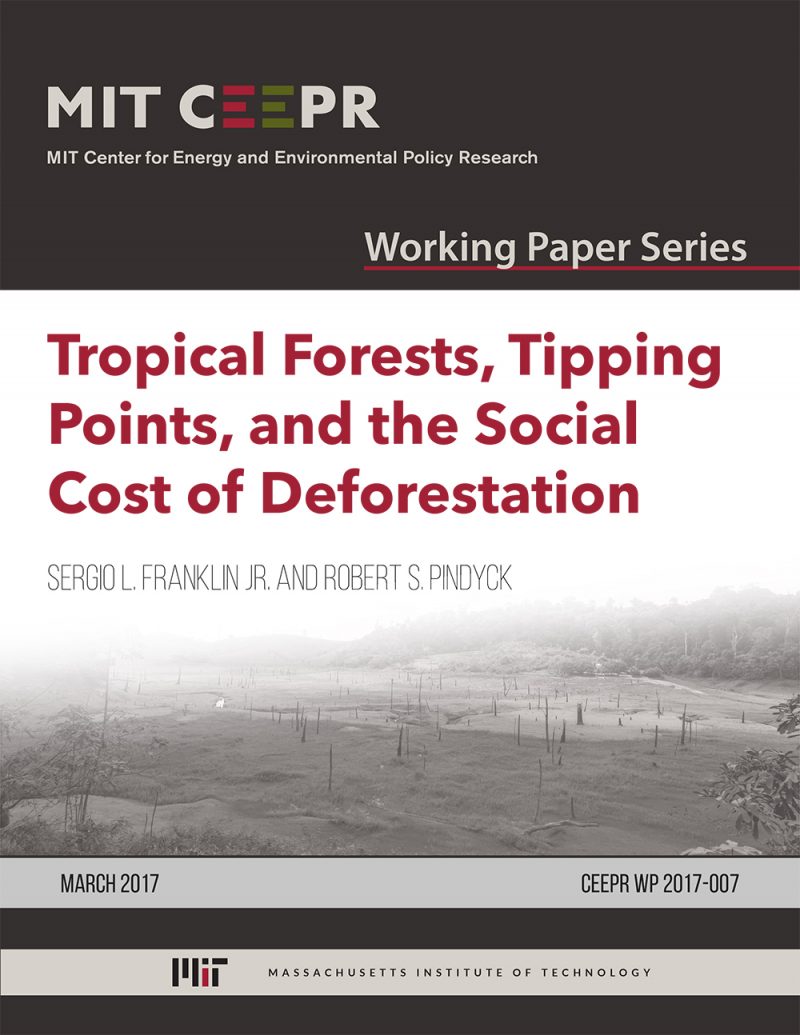Tropical Forests, Tipping Points, and the Social Cost of Deforestation
Sergio L. Franklin Jr. and Robert S. Pindyck
March 2017
Recent work has suggested that tropical forest and savanna represent alternative stable states, which are subject to drastic switches at tipping points, in response to changes in rainfall patterns and other drivers. Deforestation cost studies have ignored the likelihood and possible economic impact of a forest-savanna critical transition, therefore underestimating the true social cost of deforestation. We explore the implications of a forest-savanna critical transition and propose an alternative framework for calculating the economic value of a standing tropical forest. Our framework is based on an average incremental cost method, as opposed to currently used marginal cost methods, for the design of optimal land-use policy or payments for ecosystem services. We apply this framework to the calculation of the social cost of deforestation of the Amazon rainforest.
Keywords: Deforestation, critical transition, tipping points, social cost, incremental cost, catastrophic environment change, Amazon rainforest.
JEL Classification Numbers: Q5, Q57, C6



